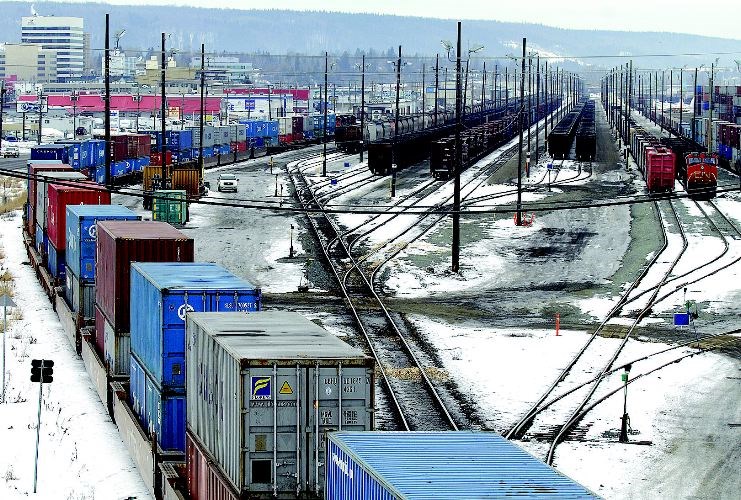A former Prince George area MLA is promoting rail cars as a means of transporting crude oil from Alberta to B.C.'s west coast as an alternative to the proposed Northern Gateway Pipeline.
Alf Nunweiler, who was the NDP MLA for the old Fort George riding from 1972 to 1975, worked as a dispatcher on the line from Jasper to Prince George for 33 years.
"I've been hearing all this kerfuffle and controversy about the pipeline hearings and I got thinking 'Well, jiminy I've worked on the railroad all these years, I should know a little bit.'"
Nunweiler lists a handful of advantages he believes trains hold over pipelines.
Cars could be filled completely with raw bitumen whereas pumping through pipes requires as much as 30 per cent condensate to 70 per cent oil for fluidity.
Rail would also negate the $5.5 billion expenditure to build a pipeline and $100 million to make Prince Rupert's port supertank friendly. He also believes Prince Rupert, with its deep water port, would pose fewer hazards than the Kitimat proposal by
avoiding the sensitive Douglas channel.
And Nunweiler added CN Rail upgraded its track to Prince Rupert to a standard capable of handling high-volume traffic.
"It has the latest technology available on railroads - that is, automatic signals and computerized systems for traffic control," Nunweiler said in the press release.
Adding a second track once the first track reached capacity is possible, he added.
"Most dispatchers, or rail traffic controllers, know that double tracks can handle three times the capacity of a single track
because there are no opposing movements."
Nunweiler calculates CN Rail has the capacity to deliver 2.6 million barrels of bitumen to Prince Rupert each day, compared to 525,000 barrels via the Northern Gateway Pipeline.
It would take 875 cars per day to match the pipeline's capacity, based on 600 barrels per car.
Nathan Lemphers of the Alberta-based environmental group Pembina Institute said both methods have their pluses and
minuses.
If a train carrying oil derails, it could lead to a significant spill, Lemphers said, "but not as significant as the [pipeline] spills we've seen recently, whether it's the 28,000 barrel Rainbow pipeline we saw in Alberta last spring or the 20,000 barrels that leaked into the Kalamazoo River in Michigan in 2010."
That said, Pembina Institute has not taken a stand on which is better.
However, Lemphers said neither option will address the main issues surrounding oil-carrying supertankers on B.C.'s coast and extracting crude from the oilsands.
"Until those sorts of concerns are alleviated, it still won't be smooth sailing for rail proponents," Lemphers said.
CN Rail spokesperson Kelli Svendsen said CN "offers a flexible, scalable solution, with assets and service to match the oil industry's evolving needs.
"The CN network is fluid and has capacity to meet the needs of our customers as production increases.
We can ramp up service to daily units ... based on customer demand."



